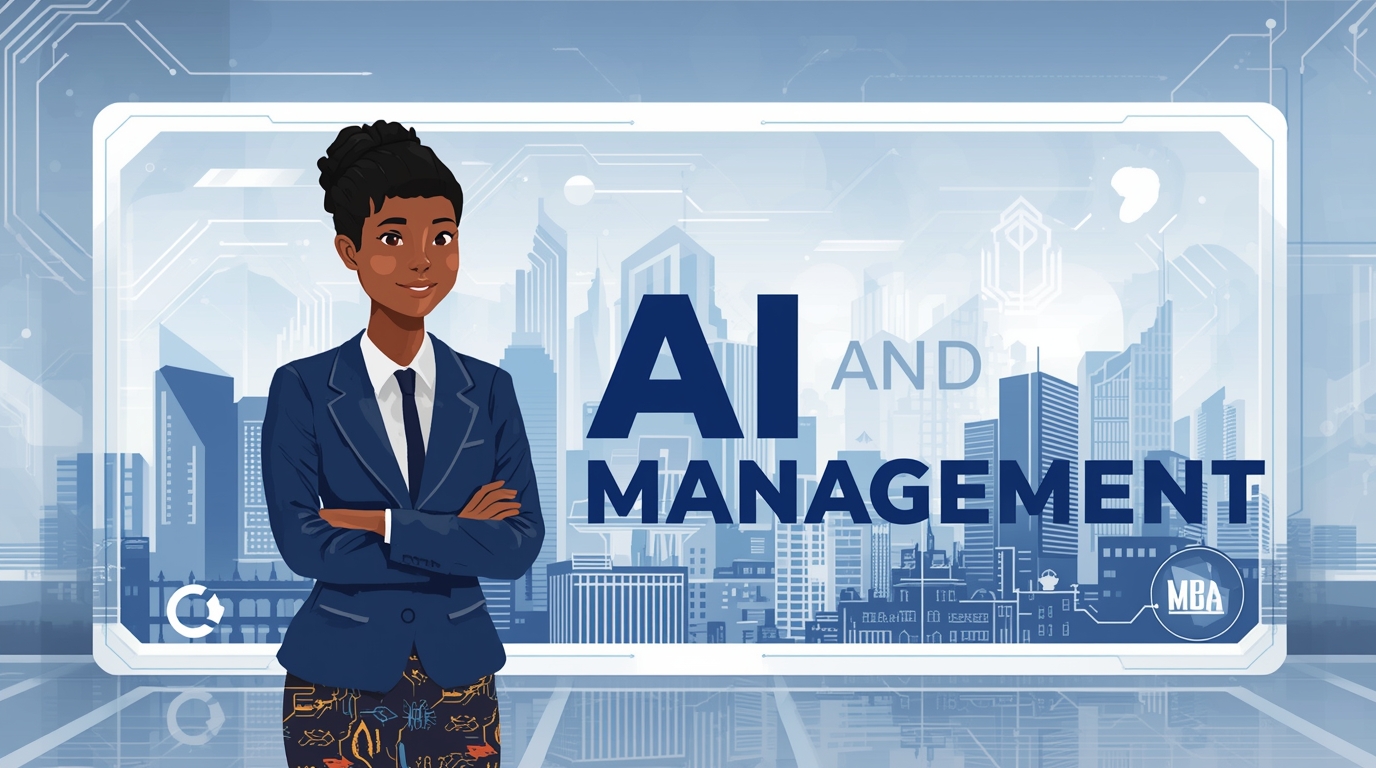Singapore is famous for being efficient. The trains run on time, the streets are clean, and businesses move fast. For a professional looking to change their career path—what business schools call a “pivot”—there is no better place to be. But moving to Singapore for a Master of Business Administration (MBA) is not a holiday. It is a strategic mission. A “pivot” means changing your industry, your job function, or your location. Doing all three at once is called the “Triple Jump,” and it is very difficult. To succeed in a competitive market like Singapore, you need a plan. Here is a practical guide on how to use every minute of your time in the Lion City to secure that dream career change. 1. Understanding the Singapore “Hub” Advantage First, you must understand where you are. Singapore is the headquarters for Asia. This means the decision-makers are physically present. In other countries, you might be studying in a university town far away from the business capital. In Singapore, your campus is likely 20 minutes away from the CEO’s office. The Strategy: Don’t stay on campus. Use your proximity. You can attend a morning class, have lunch with a Director in the Central Business District (CBD), and be back for an afternoon lecture. You must treat the city as your classroom. 2. The Art of the “Coffee Chat.” In Singapore, business culture is professional but relationship-driven. The “coffee chat” is the secret weapon of the MBA student. Cold emailing someone to ask for a job rarely works. However, asking for 20 minutes of their time to learn about their industry often does. Singaporean professionals are generally open to mentoring if you are polite and prepared. How to do it correctly: 3. Targeting the “Growth” Industries A successful pivot relies on market demand. You cannot pivot into an industry that is shrinking. You need to swim with the tide. In Singapore, the government clearly signals which industries it is supporting. If you want to pivot, target these sectors where the government is actively issuing work visas: Align your MBA elective courses with these industries. If you want to work in Agri-Tech, write your final thesis on food security supply chains. 4. Mastering the Internship If you are changing careers, your CV has a gap. You might be a marketer applying for a finance job. Employers view this as a risk. “Can they actually do the finance work?” An internship removes that risk. Many MBA programs in Singapore allow you to do a “summer associate” role or a part-time internship. This is critical. It is better to have a lower GPA and a solid internship than a perfect GPA and zero local work experience. The “Project” Pivot: If you cannot find a full internship, offer to do a project. Approach a startup at the LaunchPad @ one-north (a major startup hub) and say: “I am an MBA student. I will write your market entry strategy for Indonesia for free.” You get experience to put on your CV; they get free consulting. It is a win-win that proves you can do the job. 5. Navigating the Visa Landscape (COMPASS) This is the most important “true information” you need to know. Singapore has tightened its work visa rules. It is no longer easy for foreigners to just “get a job.” The new framework is called COMPASS (Complementarity Assessment Framework). To get an Employment Pass (EP), you need to score points. What this means for you: You must be realistic. You are “expensive” to hire because of the minimum salary requirements. You need to prove to an employer that you are worth that high salary immediately. You cannot expect to start at the bottom. You must pivot into a role that values your past experience combined with your new MBA skills. 6. Utilizing “In-Semester” Recruitment In the US or Europe, recruitment often happens at the very end of the year. In Singapore, it is a rolling process, but there are peak seasons. Large banks and consulting firms (McKinsey, Bain, BCG) often recruit MBA students in August/September for the following year. If you arrive in Singapore in August and think, “I will settle in first and look for a job later,” you might miss the boat. Start your pivot on Day 1. Have your CV ready in the Singapore standard format (clean, concise, usually 1-2 pages, no photo is required but is sometimes acceptable). 7. Understanding Cultural Nuance To pivot successfully, you must fit in. Singapore provides a mix of Eastern and Western business cultures. 8. The “Local” Elective Strategy Most international MBA students flock to the “Global Strategy” or “International Marketing” classes. To pivot into Singapore, do the opposite. Take classes that focus on Asian Business Environments or Singapore Law. This shows employers that you are committed to the region. It gives you talking points in interviews that other foreigners won’t have. It shows you are not just a tourist student, but someone investing in local knowledge. The Pivot is a Full-Time Job Using your time in Singapore to pivot is intense. You are essentially doing two full-time jobs: studying for your MBA and hunting for your new career. You will face rejections. You will feel tired. But remember why you chose Singapore. It is a place where things happen fast. One good coffee chat can lead to an internship; one good internship can lead to an Employment Pass. Be strategic, be humble, and be persistent. The pivot is possible, but you have to build the bridge while you are walking on it. Frequently Asked Questions Social Share
Author: admin
Why Online MBAs Are the Financial Hack for Singapore-Based Professionals
Singapore is a city that understands the value of a dollar. In a nation built on trade, finance, and efficiency, we are constantly calculating the Return on Investment (ROI) of our decisions. Whether it’s choosing between a BTO or a resale flat, or deciding which credit card gives the best miles for dining, the Singaporean professional is financially savvy by necessity. We live in one of the most expensive cities in the world. Inflation is a daily conversation topic. Rent for expats and housing prices for locals are at historic highs. Yet, in this high-cost environment, the pressure to upskill is relentless. The career ladder in the CBD is slippery; if you aren’t climbing, you’re sliding. This creates a dilemma: How do you get the elite education required to secure a C-suite role without blowing your savings on a six-figure degree? Enter the Online MBA. For years, online degrees were viewed as the “budget option.” Today, for the smart money in Singapore, they are viewed as the “financial hack.” They are the arbitrage opportunity of the education world—offering the same strategic leverage as a traditional degree but with a vastly superior financial structure. Here is the deep dive into the math behind why an Online MBA is the smartest investment for Singapore-based professionals. 1. The “Sticker Price” Arbitrage Let’s start with the most obvious factor: Tuition Fees. If you look at the top-tier, in-person MBA programmes offered by universities in Singapore (or reputable satellite campuses of foreign unis), the tuition fees alone can range from SGD $75,000 to over SGD $140,000. That is a deposit on a condo. That is a luxury car (sans COE). That is a significant chunk of capital that is no longer compounding in your investment portfolio. The Online Hack: High-quality, accredited Online MBAs from US, UK, or European institutions often range from SGD $15,000 to $40,000. Why the difference? You aren’t paying for the air-conditioning in a fancy lecture theatre on Clementi Road. You aren’t paying for the campus landscaping or the administrative bloat of a physical facility. You are paying strictly for the curriculum, the faculty, and the platform. By choosing online, you are essentially getting the “software” of the MBA without paying for the “hardware.” For a finance professional, this is an immediate 60-70% reduction in CAPEX (Capital Expenditure). 2. The Silent Killer: Opportunity Cost Most people only look at the tuition fee. But any seasoned Singaporean accountant knows that the real cost of an MBA is the Opportunity Cost. If you enroll in a full-time, one-year MBA program to pivot your career, you are not just paying tuition. You are also deleting one year of income. Let’s do the math for a mid-career professional in Singapore: The Online Hack: With a flexible Online MBA, you keep your job. You keep your $8,000/month salary. You keep your employer’s CPF contributions (if you are a local/PR). You keep your health insurance. The difference isn’t just marginal; it’s exponential. The professional who chooses the Online MBA ends the year nearly $175,000 wealthier than the peer who quit to study full-time. That is the definition of a financial hack. 3. Immediate ROI: The “Learn on Tuesday, Earn on Wednesday” Model In a traditional MBA, the Return on Investment is delayed. You spend 12-24 months in a classroom, accumulating knowledge (and debt), hoping for a massive salary jump after graduation to pay it all back. The Online MBA flips this model. Because you are working while studying, the ROI is immediate and continuous. For professionals in Singapore’s fast-paced tech and finance sectors, this agility is priceless. You are upgrading your operating system while the machine is still running. 4. Avoiding “Lifestyle Inflation” and Hidden Costs Studying in person in Singapore—or worse, flying abroad—comes with hidden “lifestyle inflation.” There are the mandatory networking drinks at Boat Quay. The international study trips (often extra cost). The commuting costs (Grab or parking in the CBD adds up). The expensive lunches with cohorts. The Online Hack: When you study online, you study from your home in Tiong Bahru, your office in Changi Business Park, or your sofa in Tampines. It sounds trivial, but in a city where the cost of living is rising, saving an extra $500 a month on “incidental study costs” over 18 months equals $9,000. That covers almost half the tuition of some online programs. 5. Global Networking Without the Flight Ticket Singapore is a hub, but it can also be a bubble. A local MBA gives you a local network. While valuable, if your goal is to do business with the US, Europe, or China, a purely Singaporean cohort has limitations. To get a global network traditionally, you’d have to relocate to London or New York. The cost of living difference, plus rent, plus flights, makes this astronomically expensive. The Online Hack: An International Online MBA places you in a cohort with professionals from around the world. You might be working on a capstone project with a logistics director in Germany and a tech founder in Silicon Valley. You are building a global contact list—essential for anyone working in Singapore’s export-oriented economy—without the cost of an international relocation. You are importing global connectivity at local broadband prices. 6. The “Expat Package” Protector This point is specifically for the expatriate community in Singapore. If you are on an expat package or a local-plus contract, your housing allowance and visa status are tied to your employment. Quitting your job to study full-time isn’t just a financial hit; it’s an immigration risk. You lose your Employment Pass (EP). You have to scramble for a Student Pass (which has restrictions). You likely have to move out of your current apartment. The Online Hack: An Online MBA is visa-neutral. It doesn’t care if you are on an EP, a DP (Dependent Pass), or a PR. It doesn’t threaten your housing situation. It is the safest way for a foreign professional in Singapore to upgrade their qualifications without rocking the boat of… Continue reading Why Online MBAs Are the Financial Hack for Singapore-Based Professionals
Why Singaporean Entrepreneurs Are Choosing an Online MBA to Scale Their Start-ups
Singapore is arguably the best place in the world to launch a business. It is the gateway to ASEAN, a fortress of intellectual property rights, and a haven of tax efficiency. For many expats, the journey starts with a corporate posting. You arrive on an Employment Pass, fall in love with the efficiency and the lifestyle, and then spot a gap in the market. Whether you are a “trailing spouse” launching a consultancy, a tech professional pivoting to build a FinTech app, or a corporate refugee starting a D2C brand, the transition from Singapore Expat to Singapore Founder is thrilling. But it is also brutal. The startup ecosystem here is sophisticated and hyper-competitive. To scale beyond a lifestyle business and tap into the massive markets of Indonesia, Vietnam, and Malaysia, you need more than just a good idea. You need strategic depth. This is why a growing number of expat entrepreneurs in Singapore are quietly adding a powerful weapon to their arsenal: The Online MBA. Here is why they are choosing this path over traditional networking mixers or full-time degrees. 1. Breaking Out of the “Expat Bubble” If you live in River Valley or Sentosa and hang out at Robertson Quay, your network is likely 80% other expats. While this is great for social life, it is terrible for scaling a business in Asia. To scale, you need to understand the region. You need to know how supply chains work in Johor Bahru, how digital payments are evolving in Jakarta, and how consumer behavior shifts in Bangkok. The MBA Advantage: An International Online MBA cohort is diverse by design. You aren’t just sitting in a room with other people who moved to Singapore from London or New York. You are collaborating with a logistics manager based in Dubai, a manufacturer in Mumbai, and a digital marketer in Nairobi. 2. Mastering the “Hub Strategy” (Without the Jargon) Singapore is the HQ economy. Your startup might be registered here, but your customers are likely out there in the region. Managing a cross-border business requires a very specific set of skills that most solopreneurs lack. You might be an expert in your product, but do you understand: The MBA Advantage: An MBA curriculum forces you to look at the “boring” parts of business structure. Modules on Global Operations and Managerial Economics give you the framework to run a Singapore HQ that effectively manages teams and assets across Southeast Asia. It turns you from a “shopkeeper” into a “regional CEO.” 3. Credibility with Local Investors and Partners The MBA Advantage: An MBA signals commitment and competence. It is a universal language. When you pitch to a Family Office in Singapore or a VC firm at Block 71, having an MBA on your pitch deck answers the competency question before it’s even asked. It shows you speak the language of finance, valuation, and exit strategy—not just product passion. 4. The “Changi Airport” Lifestyle (Flexibility is Key) The life of a Singapore-based entrepreneur is mobile. You are flying to Bali for a retreat, to Ho Chi Minh City for a supplier meeting, or back home to Europe or the US for the summer holidays. Tying yourself to a physical classroom on a Tuesday and Thursday night in Clementi is impossible. You cannot pause your business to attend a lecture, and you certainly cannot pause your travel schedule. The MBA Advantage: This is where the Online aspect is non-negotiable. 5. Saving Capital for Your Runway (The Rent Factor) We don’t need to tell you that Singapore is expensive. Residential rents have soared. Office space in the CBD is premium. As a boot-strapping entrepreneur, cash is oxygen. A traditional, in-person Executive MBA in Singapore can cost anywhere from SGD $80,000 to $150,000. That is an entire Seed Round of funding for some startups. The MBA Advantage: An accredited Online MBA from a US or UK institution often costs a fraction of the price of a local physical programme. 6. Speaking the Language of “Smart Nation” Singapore is pushing hard into Deep Tech, AI, and Sustainability. The government grants (like the EDG or PSG) are geared towards companies that are data-driven and innovative. If your background is in a non-tech field, you might feel left behind by the “Smart Nation” rhetoric. The MBA Advantage: Modern MBA curriculums are heavy on Business Intelligence, Data Analytics, and Digital Transformation. You don’t need to become a coder, but you need to understand how to manage data. An MBA gives you the fluency to write grant proposals, speak to developers, and pivot your business model to align with Singapore’s national economic goals. Don’t Just Live Here, Lead Here For the expat entrepreneur, Singapore offers a platform that is unmatched in Asia. But standing on the platform isn’t enough; you need to build a rocket. An Online MBA bridges the gap between your past experience and your future ambition. It allows you to upgrade your skills without pausing your hustle. It helps you integrate into the regional economy, rather than just floating on top of it. If you are ready to stop being an “expat with a side hustle” and start being a “regional founder,” it’s time to look at the degree that scales with you. Frequently Asked Questions Social Share
Why a DBA is the New Status Symbol for Expats living in Singapore
Walk into any high-end boardroom in Raffles Place or Marina Bay Financial Centre, and the competitive reality of Singapore becomes immediately clear. In this city, which prides itself on human capital and meritocracy, a university degree is merely the baseline. For years, expatriate professionals relied on the Master of Business Administration (MBA) as their golden ticket to the C-suite. However, the landscape has shifted. Today, the market is flooded with MBAs, and being “good” is no longer enough to secure a top-tier position in Singapore’s hyper-competitive environment. To stand out, elite executives are turning to a new status symbol: the Doctor of Business Administration (DBA). Here is why this qualification is becoming essential for expats looking to solidify their authority and future-proof their careers in Asia. 1. Distinguishing Yourself in a Saturated Market Twenty years ago, an MBA was a rare differentiator. Today, with numerous local universities and international branch campuses churning out graduates, thousands enter the Singapore job market annually. For senior expats, this creates a differentiation crisis. If you are competing for a CEO or Director role against three other candidates who all possess excellent MBAs, how do you win?. The DBA places you in the top 1% of educated professionals. While your competitors know how to manage a business, a DBA signals that you have the skills to analyze and improve business practices through rigorous research. 2. Authority and Personal Branding (“The Dr. Factor”) In Asian business culture, titles command immense respect and status matters. Completing a DBA grants you the legal right to use the title “Dr.”. For an expat, this is a powerful branding tool. Walking into a meeting as “Dr.” immediately shifts perception, signaling that you are not just a business operator, but a scholar-practitioner. It implies a level of verified expertise that distinguishes you from the crowd. For consultants and corporate trainers, this title can even justify higher fees. 3. Breaking into the Elite Local Network Expats often find themselves networking within an “expat bubble.” An MBA might connect you with younger professionals just starting their careers. A DBA program, however, offers entry into a far more exclusive circle. To enter a reputable DBA program, candidates usually require 10 to 15 years of management experience. Your classmates will be fellow CEOs, Managing Directors, and Senior Civil Servants. In Singapore, where “who you know” is vital, spending years debating complex topics with the country’s decision-makers facilitates high-level partnerships that standard networking events simply cannot provide. 4. Solving Regional Problems (Not Just Theory) There is often confusion between a PhD and a DBA. While a PhD is theoretical and designed for academics, the DBA is a professional doctorate for working executives. Singapore values practicality and efficiency. A DBA allows you to turn your company into a laboratory, using your actual work as research material. For example, a logistics director can use their research to design a new supply chain model specifically for Southeast Asia. This direct application demonstrates to employers that you are not just studying for the sake of it, but to solve specific industry problems. 5. Flexibility for the Regional Role Many expats worry that doctoral studies require living in a library for four years, which is incompatible with a regional role involving travel to Jakarta or Tokyo. Modern DBA programs are designed for the jet-setting executive. They offer: This allows Singapore-based expats to pursue degrees from top global schools without quitting their jobs or relocating. 6. Future-Proofing for Your “Second Career” Whether you plan to stay in Singapore indefinitely or return home, a DBA prepares you for a “portfolio career” post-retirement. The Ultimate Luxury In the 1990s, success in Singapore was a Bachelor’s degree; by the 2010s, it was an MBA. Now, the bar has been raised again. The DBA is not an easy path; it requires discipline, late nights, and resilience. But in a city that respects hard work above all else, earning a DBA is the ultimate luxury—a status symbol that cannot be bought, only earned. Frequently Asked Questions Social Share
AI + Management: Why an MBA Is Ideal for African Professionals
In the rapidly evolving world of technology and business, one of the most powerful forces reshaping industries globally is Artificial Intelligence (AI). As AI technologies continue to disrupt sectors such as finance, healthcare, logistics, agriculture, and education, the demand for professionals who can effectively manage these innovations is higher than ever. This shift is particularly relevant for African professionals, where business landscapes are changing, and opportunities to leverage AI are becoming abundant. For these professionals, pursuing an MBA with a focus on AI and management has emerged as an essential step to not only keep pace with technological advancements but also to lead the charge in integrating AI into organizational strategies. But why exactly is an MBA the perfect tool for mastering the marriage of AI and management in the context of East and Southern Africa? The Growing Influence of AI in Africa East and Southern Africa are experiencing a technological renaissance, with AI increasingly becoming a catalyst for innovation across multiple industries. According to a report by the African Development Bank, the African AI market is expected to grow significantly in the coming years, particularly in key sectors like agriculture, financial services, healthcare, and education. For instance: As industries grow more reliant on AI, the need for professionals who understand both the technology and the business implications has never been more critical. This is where an MBA with a focus on AI and management comes into play. Why an MBA is the Ideal Path for AI + Management Integration While technical experts and data scientists play a crucial role in AI innovation, it is the managers who are responsible for implementing, scaling, and aligning AI initiatives with the broader business goals. This is where a management-focused degree, such as an MBA, can prove invaluable. Here are several reasons why an MBA is ideal for East and Southern African professionals aiming to integrate AI into business management. 1. Bridging the Gap Between Technology and Business Strategy AI, like many cutting-edge technologies, can seem highly technical and complex. For AI to be truly impactful in the business world, it needs to be effectively integrated into existing business strategies. An MBA equips professionals with the strategic thinking required to understand how AI can drive growth, streamline operations, and enhance competitive advantage. MBA programs with a focus on AI and management teach professionals how to: For professionals in East and Southern Africa, this means they can act as bridge-builders, connecting AI engineers with business leaders to ensure that technological investments are both profitable and strategically sound. 2. Developing Leadership Skills for AI Adoption Managing AI initiatives isn’t just about understanding the technology itself it’s about leading teams and organizations through the cultural and operational shifts that come with adopting new technologies. Implementing AI often requires a change management approach, as it can disrupt established workflows, job roles, and business processes. An MBA program prepares professionals to lead teams through this transformation, providing them with the necessary leadership skills, including: In East and Southern Africa, this leadership ability is crucial for organizations in emerging markets where AI adoption is still in its early stages. Professionals who can navigate both the human and technological challenges are in high demand. 3. Access to Global Networks and Cutting-Edge Knowledge One of the key benefits of pursuing an MBA, especially from an international institution or an MBA program with a global perspective, is the access to a vast professional network. AI is a global phenomenon, and collaboration with international experts can open doors to new business partnerships, knowledge sharing, and investment opportunities. For East and Southern African professionals, these networks are invaluable in gaining exposure to global AI trends and best practices. Additionally, an MBA offers opportunities to: Building these networks is essential for professionals in Africa, where AI adoption is rapidly expanding, but still requires significant investment and know-how to thrive. 4. Addressing Africa’s Unique Challenges with AI Solutions AI is not a one-size-fits-all solution, and its applications need to be tailored to local contexts. East and Southern Africa face unique challenges such as limited infrastructure, access to capital, and social inequalities that require specialized approaches to AI deployment. An MBA program with a focus on AI equips professionals with the knowledge to design AI solutions that address these specific issues. For example, AI can help tackle challenges such as: An MBA helps professionals think critically about how to apply AI to these challenges, ensuring that AI adoption leads to tangible, impactful solutions for the region. 5. Competitive Advantage in a Rapidly Changing Job Market As AI continues to influence industries across East and Southern Africa, there is an increasing demand for professionals who can not only understand AI but also drive its integration into business models. For those seeking career advancement, an MBA with an AI focus provides a competitive advantage in a market where employers are looking for professionals who possess both leadership skills and AI expertise. Having an MBA allows professionals to position themselves as thought leaders in the AI field, making them attractive candidates for roles such as: With the right combination of technical and management skills, professionals can rise to the top of the corporate ladder or even venture out as successful entrepreneurs launching AI-driven start-ups. The Future of AI + Management in Africa The intersection of AI and business management is transforming the landscape of industries across East and Southern Africa. As AI becomes more prevalent, professionals who can combine technological understanding with strong leadership and strategic business skills will be in high demand. For East and Southern African professionals, an MBA with a focus on AI management is more than just a degree it is a pathway to success in a rapidly changing, tech-driven world. By equipping themselves with the tools, knowledge, and networks needed to lead AI initiatives, they will be at the forefront of business innovation, ready to drive meaningful change in their organizations and beyond. As the region continues to grow and evolve, the professionals who… Continue reading AI + Management: Why an MBA Is Ideal for African Professionals
Why an MBA Is the Career Boost Singaporean Professionals Need
If you stand at Raffles Place during lunch hour, you see a sea of ambition. Singapore is arguably the most competitive business hub in Asia. We are a nation that prides itself on efficiency, upgrading, and staying ahead of the curve. The “Little Red Dot” punches above its weight because its people do the same. But for the mid-career professional in Singapore today, the landscape is shifting. The “Iron Rice Bowl” is a thing of the past. Disruption is the new normal. We are seeing massive restructuring in our banking sector, a surge in Family Offices, a tech winter that is thawing into an AI spring, and a national push towards the Green Economy. In this hyper-competitive environment, a Bachelor’s degree—once the golden ticket—is now merely the baseline. Everyone has one. To stand out, to pivot, and to ascend to the C-suite in a regional headquarters, you need something more. This is why the Master of Business Administration (MBA) is experiencing a renaissance in Singapore. It is no longer just a “nice-to-have”; for many, it is the essential lever to break through the mid-career plateau. 1. Escaping the “Specialist Trap” Singapore’s education system is excellent at producing high-quality specialists. We have world-class engineers, accountants, and IT professionals. But there comes a point in your career—usually around the 5 to 8-year mark—where being a specialist stops being an advantage and starts becoming a ceiling. You are the best at what you do technically, but you aren’t being invited to the strategy meetings. You aren’t being considered for the Regional Director role because you are viewed as the “tech guy” or the “finance person,” not a business leader. An MBA creates the bridge from Specialist to Generalist. It teaches a software engineer how to read a balance sheet. It teaches a marketing manager how to understand supply chain logistics. In Singapore’s hub economy, where companies are often managing operations across Vietnam, Indonesia, and Thailand, they need leaders who understand the whole business, not just one silo. An MBA signals to your employer (and the market) that you are ready to stop fixing the machine and start steering the ship. 2. Pivoting to Singapore’s Growth Sectors The Singaporean government is famously forward-looking. Through initiatives like the Industry Transformation Maps (ITMs), the economy is constantly pivoting. Right now, the money and the growth are flowing into: If you are stuck in a “sunset industry” or a role that is being automated, you might feel trapped. How do you move from a traditional logistics role to a high-growth role in a FinTech startup? An MBA is the most effective pivot tool available. It allows you to “rebrand” yourself. It gives you the academic foundation in these new areas without you having to start from the bottom of the ladder. It shows recruiters that you possess the agility and the updated toolkit required for the modern economy. In a country that champions “SkillsFuture” and lifelong learning, an MBA is the ultimate badge of resilience. 3. The Power of the Network in a Global Hub They say, “Your network is your net worth.” In Singapore, this is doubly true. We are a global meeting point. The value of an MBA isn’t just in the case studies you read; it is in the people you read them with. When you join a reputable MBA programme, you aren’t just sitting in a class; you are entering a cohort. You might be working on a group project with a VP from a global bank, a founder of a logistics startup, and a consultant from the Big Four. These connections become your future business partners, your investors, and your headhunters. Furthermore, opting for an International MBA (even an online one from a global institution) opens doors beyond Changi Airport. As Singaporean companies look to expand into the US, Europe, and the wider ASEAN region, having a degree that connects you to a global alumni network is a massive strategic asset. It moves your contact list from local to global. 4. The ROI: Salary Bumps and the Cost of Living Let’s be pragmatic. We live in one of the most expensive cities in the world. Inflation is real, and the cost of living in Singapore is high. Passion is great, but salary matters. Historically, data consistently shows that an MBA correlates with a significant salary jump. For Singaporean professionals, the “MBA Bump” often happens in two ways: While an MBA requires a financial investment, the Return on Investment (ROI) is calculated over the remaining 20 or 30 years of your career. The cost of not upgrading—of staying stagnant while inflation rises—is often higher than the tuition fees. 5. Flexibility: Keeping Your “Iron Rice Bowl” While You Study Ten years ago, doing an MBA meant quitting your job for two years. For most Singaporeans with HDB mortgages, car loans, and aging parents to support, that was simply not an option. The game has changed. The rise of Online and Blended MBAs has democratized access to executive education. You no longer have to choose between your career and your education. You can do both. Modern programmes are designed for the “time-poor, ambition-rich” professional. They allow you to study on the MRT commute, late at night after the kids are asleep, or on weekends. This flexibility is crucial in the Singaporean context. It allows you to apply what you learn on Tuesday directly to your meeting on Wednesday. It shows your employer that you are ambitious enough to upskill, but loyal enough to keep delivering results. 6. Developing “Soft Skills” in a Hard Skills World Singaporeans are world champions at “Hard Skills”—maths, coding, engineering. But as we move up the value chain, the differentiator becomes “Soft Skills.” Can you negotiate a deal with a partner in Japan? Can you manage a conflict between a team member in India and a client in the UK? Can you pitch a vision to investors with confidence? An MBA is essentially a laboratory for soft skills. Through leadership… Continue reading Why an MBA Is the Career Boost Singaporean Professionals Need
East Africa to the World: How an MBA Builds Globally Minded Professionals
For a long time, business in East Africa was intensely local. If you were a trader in Nairobi, your main concern was the customer in Nakuru. If you were a manufacturer in Dar es Salaam, you would look as far as Arusha or maybe Zanzibar. Success meant dominating your home turf. But the winds of change are blowing across the region. From the tech hubs of Kigali to the busy port of Mombasa, the definition of “business” is expanding. Today, a coffee farmer in Uganda is directly affected by price fluctuations in Brazil. A fintech startup in Kenya is competing for investment against companies in Nigeria and India. We are no longer just citizens of our local towns; we are players in a global economy. For professionals in East Africa, this shift presents a massive opportunity, but also a challenge. How do you transition from being a local manager to a global leader? How do you learn to speak the language of international business? This is where the Master of Business Administration (MBA) becomes a critical bridge. It is not just a degree; it is a passport to the global stage. Here is how an MBA transforms ambitious East Africans into globally minded professionals ready to take on the world. Understanding the Bigger Picture It is easy to get trapped in a “bubble.” If you work in a bank in Kampala, you become an expert on Ugandan banking laws and Ugandan customers. This is important, but it is limited. An MBA forces you to break out of that bubble. In your classes, you don’t just study local examples. You study case studies from around the world. You might analyze how Toyota manages its supply chain in Japan, how Apple markets its products in Europe, or how a bank in South America handled a financial crisis. This exposure changes how you think. You start to see patterns. You realize that a problem facing your company in Tanzania might have already been solved by a company in Singapore. By learning these global lessons, you can bring world-class solutions back home to East Africa. Navigating the AfCFTA and Regional Integration We cannot talk about global business without talking about our own backyard. The East African Community (EAC) is integrating, and the African Continental Free Trade Area (AfCFTA) is opening up borders across the continent. Suddenly, the market is not just 50 million people; it is 1.3 billion people. However, trading across borders is complicated. It involves different currencies, different laws, and different tax systems. An MBA provides the technical skills to navigate this complexity. You learn about: For the modern East African executive, understanding these agreements is no longer optional—it is essential for survival. Cultural Intelligence (CQ) Business is not just about numbers; it is about people. And people from different parts of the world do business differently. In some cultures, looking someone in the eye is a sign of respect; in others, it is aggressive. In some countries, you sign a contract immediately; in others, you must drink tea and build a relationship for weeks first. A quality MBA program puts a heavy emphasis on “Cultural Intelligence” or CQ. Because many MBA programs are now online or hybrid, you will likely find yourself in a study group with a student from London, a student from Dubai, and a student from Lagos. Working with them on a project teaches you more than any textbook could. You learn how to negotiate, how to communicate across time zones, and how to respect different viewpoints. When you eventually sit across the table from an international investor or partner, you won’t be intimidated or confused by cultural differences. Speaking the “Global Language” of Business Imagine a Board of Directors meeting at a multinational company like Coca-Cola or Standard Chartered. The people in that room might be from five different continents, but they all speak the same “language.” They use terms like “ROI” (Return on Investment), “EBITDA” (Earnings Before Interest, Taxes, Depreciation, and Amortization), and “KPIs” (Key Performance Indicators). If you want to sit at that table, you must speak that language fluently. An MBA standardizes your knowledge. It ensures that when you look at a balance sheet, you are reading it the same way a CEO in New York or Shanghai reads it. This standardization is what gives East African professionals the credibility to work anywhere in the world. It proves you have mastered the universal toolkit of management. Harnessing Technology and Innovation East Africa is already famous for mobile money (M-Pesa), but the world of technology moves fast. Artificial Intelligence, Blockchain, and Big Data are reshaping industries overnight. Global MBA programs are at the cutting edge of these trends. They don’t just teach you how to use technology; they teach you how to build a business strategy around technology. For example, an MBA module might challenge you to think about how a tea exporter in Kericho can use Blockchain to prove the origin of their tea to a customer in Germany. It pushes you to think about how AI can help a hospital in Nairobi predict patient numbers. By understanding these global tech trends, you stop being a passive consumer of technology and become an innovator who uses tech to solve local problems on a global scale. The Diaspora and Returnees There is a powerful trend in East Africa today: the “Brain Gain.” Many professionals who moved to the US, UK, or Canada are looking to invest back home or return permanently. Similarly, local professionals are looking to partner with the diaspora. An MBA is often the common ground where these two groups meet. It is a networking hub. Through alumni networks, a student in Nairobi can connect with a graduate in Washington, D.C. who is looking for investment opportunities in Kenya. These connections are powerful. They bridge the gap between local knowledge and international capital. Being part of a reputable MBA network gives you access to a “Global Rolodex” of contacts that you can… Continue reading East Africa to the World: How an MBA Builds Globally Minded Professionals
Advance Without Relocating: Earn an International MBA from Kenya, Rwanda and Zambia
There is a specific scene that has played out at Jomo Kenyatta International, Kigali International, and Kenneth Kaunda International airports for decades. It involves a talented, ambitious young professional standing at the departure gate, waving goodbye to their family. They are off to the UK, the US, or Australia to get the “big degree”—the MBA that will secure their future. It’s a bittersweet moment. There is pride, yes. But there is also a heavy cost. There is the heartbreak of leaving children or partners behind. There is the enormous financial strain of paying rent in London or New York. And there is the professional pause—stepping off the career ladder in Nairobi, Lusaka, or Kigali for two years, hoping that when you return, the market hasn’t forgotten you. For a long time, this was the only way. To get world-class business education, you had to physically go to the world. But the map has changed. In 2025, the most strategic career move isn’t packing a suitcase. It’s staying exactly where you are. It’s about keeping your job, keeping your network, and keeping your roots in African soil, while bringing a global education to you. This is the era of the International Online MBA. And for professionals in East and Southern Africa, it is the ultimate game-changer. The Myth of the “Brain Drain” (And the Rise of “Brain Gain”) We have talked for years about the “Brain Drain” in Africa—our brightest minds leaving to study and often never coming back. But we are now seeing a shift toward “Brain Gain.” This happens when a Finance Manager in Nairobi can access the same strategic curriculum as a student in Florida, without leaving her post at a major Kenyan bank. It happens when an entrepreneur in Kigali can learn Silicon Valley startup methodologies in the evening, and apply them to his Rwandan tech business the very next morning. This isn’t just about convenience; it’s about context. When you study abroad, you learn how business works there. When you study an International MBA online while working in Zambia, you learn how global principles apply here. You become a bridge. You take international best practices—in supply chain, in digital transformation, in leadership—and you immediately translate them into local solutions. You don’t just return with knowledge; you inhabit the knowledge. The Financial Argument: Calculating the Real Cost of a Degree Let’s talk about money. It’s usually the elephant in the room. When we calculate the cost of a traditional international MBA, we usually just look at the tuition fees. But any accountant will tell you that tuition is only half the story. The real killer is the Opportunity Cost. The Traditional Route Cost: The Online MBA Route (e.g., American Imperial University): When you do the maths, the Online MBA isn’t just cheaper; it’s a completely different financial proposition. It allows you to upgrade your career without pausing your financial growth. For a mid-level manager supporting a family, this difference isn’t just a number on a spreadsheet; it’s the difference between a dream and a reality. Why “International” Matters in Nairobi, Kigali, and Lusaka You might ask, “Why not just do a local MBA?” Local universities are fantastic and vital institutions. However, the business challenges facing Kenya, Rwanda, and Zambia today are increasingly global in nature. 1. The Kenyan Context: The “Silicon Savannah” Connection Nairobi is a global tech hub. Startups here aren’t just competing with companies in Mombasa; they are competing with developers in Bangalore and innovators in Tel Aviv. An International MBA gives you the global vocabulary to speak to international investors, understand global tech trends, and scale a Kenyan business beyond borders. 2. The Rwandan Context: Vision 2050 Rwanda is positioning itself as a service and innovation hub for the continent. To achieve Vision 2050, the country needs leaders who understand international standards of governance, global finance, and cross-border trade. An MBA from a US-based institution like American Imperial University (AIU) ensures your management style aligns with the international partners Rwanda is attracting. 3. The Zambian Context: Beyond Copper As Zambia seeks to diversify its economy and navigate debt restructuring, it needs leaders who understand global economics. Whether it’s in agri-business, tourism, or manufacturing, Zambian professionals need to understand how global supply chains work to plug local products into international markets. The “8 PM Student”: How Flexibility Works in Real Life The biggest fear most working adults have is: “I simply don’t have the time.” We get it. The traffic on Mombasa Road is unforgiving. The demands of a job in downtown Lusaka are intense. But the modern Online MBA is designed for the “8 PM Student.” It utilizes asynchronous learning. This means you aren’t forced to log in for a lecture at 10:00 AM on a Tuesday when you have a board meeting. It turns the “dead time” in your day into “growth time.” It’s not easy—it requires discipline—but it fits into the cracks of a busy life in a way that a traditional evening class (which requires fighting rush-hour traffic) simply cannot. American Imperial University: A Degree Without Borders This brings us to the solution. American Imperial University (AIU) has become a preferred choice for African professionals precisely because it understands this dynamic. AIU offers a Master of Business Administration (MBA) that is: But perhaps the most valuable aspect is the Network. Networking: The World is Your Classroom There is a misconception that online learning is lonely. People think, “If I don’t go to a campus, I won’t make contacts.” The reality of a modern international MBA is that your classroom is the world. In an AIU cohort, you aren’t just sitting next to someone from your own city. You might be collaborating on a project with a Logistics Manager from Dubai, a FinTech entrepreneur from Lagos, and a Healthcare Director from London. You are building a global contact book from your desk in East Africa. Imagine you are a Zambian entrepreneur looking to export goods. Through your MBA cohort, you might… Continue reading Advance Without Relocating: Earn an International MBA from Kenya, Rwanda and Zambia
Balancing Work, Life & Study: Flexible MBA for Zambian Executives
For many professionals in Lusaka, Ndola, and Kitwe, the day starts early. You might be up by 05:00 AM to beat the traffic on Great East Road or the Copperbelt highways. You spend eight to ten hours solving crises at the office, managing teams, and driving business growth. By the time you get home, you are exhausted, and you still have family responsibilities to attend to. In the middle of this chaotic schedule, the idea of adding “study for a Master’s degree” can seem impossible. Yet, ambition does not sleep. You know that to reach the C-suite or to expand your business, you need the advanced skills and strategic mindset that a Master of Business Administration (MBA) provides. The dilemma is clear: you need the degree to advance, but you cannot afford to quit your job to get it. This is where the flexible MBA comes in. It is a game-changer for Zambian students and executives who refuse to choose between their paycheck and their education. Here is a practical guide on how to balance work, life, and study without burning out. The Myth of the “Super-Executive” First, let us be honest. No one can do everything perfectly all the time. The idea that you can work at 100%, parent at 100%, and study at 100% is a myth. Something has to give. Balancing these three aspects of life is not about being perfect; it is about management. Just as you manage a project at work with resources and timelines, you must manage your life. The flexible MBA is designed exactly for this reality. Unlike traditional degrees that require you to sit in a lecture hall every evening, flexible programs allow you to fit education into the cracks of your busy life. Understanding “Flexible” Learning When universities talk about “flexibility,” what does that actually mean for you? Overcoming Zambian Challenges: Load Shedding and Connectivity For Zambian students, online learning comes with a unique set of challenges that students in other countries might not face. The biggest one is power stability and internet access. How do you study online when the power goes out for six hours? The “Download-First” Strategy: To succeed in a flexible MBA in Zambia, you cannot rely on streaming. You must look for programs that allow you to download course materials, videos, and readings for offline use. The Solar Solution: Many executives investing in an MBA also invest in a small backup solution. A simple power bank for your router and a charged laptop can keep you connected during load shedding. Treating your study infrastructure as a business investment is crucial. Mastering Time Management If you want to survive an MBA while working full-time, you have to become ruthless with your time. Here are specific strategies that work for busy executives: 1. The “Golden Hour.” Most executives find that the evenings are too unpredictable. You might stay late at the office, or your children might need help with homework. Try waking up one hour earlier than usual. From 05:00 AM to 06:00 AM, the house is quiet, your phone is not ringing, and your brain is fresh. If you study for just one hour every morning, that is seven hours of high-quality study time per week—enough to keep up with most MBA modules. 2. The Weekend Block Social life is a big part of Zambian culture. Kitchen parties, weddings, and family braais are important. However, during your MBA, you will have to make sacrifices. You do not have to miss everything, but you might need to implement a “Study Saturday.” Dedicate Saturday mornings entirely to coursework. By noon, you are done, and you can enjoy the rest of the weekend with your family without guilt. 3. Kill the Commute Traffic in major cities is a reality. If you spend 45 minutes driving to work and 45 minutes driving back, that is 1.5 hours of dead time every day. Use audiobooks or listen to recorded lectures during this time. You are not writing essays, but you are absorbing information. This turns “dead time” into “productive time.” Securing Support: You Cannot Do It Alone An MBA is an individual degree, but it is a team effort. Talk to Your Employer: Some employees hide their studies from their bosses, fearing they will look distracted. This is often a mistake. Most employers value ambition. If you are learning new skills, you are becoming a more valuable asset to the company. Have an honest conversation with your manager. You are not asking to work less; you are asking for flexibility. Maybe you need to leave the office at 16:30 on exam days, or maybe you need to use your leave days for study weeks. If they know why you are doing it, they are more likely to support you. The Family Contract: Your spouse and children need to be on board. If you are locking yourself in the study room for two hours, your partner needs to handle the household during that time. Sit down with your family and explain the goal. “I am doing this for two years so that we can have a better future.” When they understand the “why,” the “how” becomes easier to manage. The Importance of Accreditation (ZAQA) This is a critical point for all Zambian students. The world is full of online MBAs, but not all of them are recognized in Zambia. Before you pay a single Kwacha, you must verify the accreditation. Do not be tempted by “degree mills” that offer an MBA in three months for a low price. In the executive world, reputation matters. A degree that is not recognized is a waste of time and money. Financial Planning for the Executive An MBA is expensive. For Zambian professionals, exchange rates can be a source of stress if you are paying fees in US Dollars or Pounds while earning in Kwacha. Managing Stress and Mental Health Finally, remember that you are human. Burnout is a real risk. If you work all day… Continue reading Balancing Work, Life & Study: Flexible MBA for Zambian Executives
Transform Your Business Career in East Africa: The Advantage of an 18-Month MBA from AIU
Transforming your career trajectory in East Africa’s dynamic market requires more than just ambition; it requires strategic upskilling that keeps pace with the region’s rapid growth. For professionals in Kenya, Tanzania, Rwanda, and Uganda, the business landscape is shifting from traditional management to data-driven, agile leadership. An 18-month MBA from American Imperial University (AIU) offers a compelling pathway to bridge this gap. Unlike traditional two-year programs that demand a career pause, this streamlined, online format allows you to apply new skills immediately to your current role, offering a faster return on investment (ROI) and keeping you active in the workforce. The “Africa Rising” Context: Why Speed Matters The East African Community (EAC) is home to some of the world’s fastest-growing economies. In Nairobi’s “Silicon Savannah,” tech startups are hungry for leaders who understand business intelligence. In Tanzania, the expanding energy and infrastructure sectors need project managers who can navigate complex global operations. However, a significant skills gap remains. Employers like Safaricom, Equity Bank, and the United Nations are increasingly looking for professionals who possess a blend of digital literacy, strategic leadership, and financial acumen. Waiting two years to graduate from a traditional MBA program can mean missing out on these immediate opportunities. The 18-month structure of the AIU MBA is designed for speed and relevance. It allows you to enter or advance in the job market six months earlier than your peers in traditional programs—a critical advantage in fast-moving sectors like Fintech and AgriTech. The 18-Month Advantage: A Strategic Timeline Why is the 18-month duration the “sweet spot” for East African professionals? Tailored for the East African Growth Sectors The specific modules offered in the AIU MBA align perfectly with the region’s highest-demand sectors: Flexibility: The Key to Balancing Work and Study The rigid 8:00 AM to 5:00 PM work culture in East Africa, combined with “hustle culture,” often makes traditional evening classes difficult. Traffic in Nairobi or Dar es Salaam can turn a 5:00 PM class into a logistical nightmare. AIU’s online delivery solves this “last mile” problem of education. Credibility and Recognition For East African professionals, the credibility of a degree is paramount. American Imperial University is authorized by the Florida Department of Education (Commission for Independent Education) and holds accreditation from QAHE. This external validation ensures that your degree is recognized as a legitimate, rigorous qualification, distinct from unaccredited online courses. Additionally, the university’s recognition, such as the ELETS World Education Award, signals a commitment to quality digital education—a growing priority for employers who value digital fluency. Your Next Step The East African market rewards those who are agile. An 18-month MBA from American Imperial University offers the perfect balance of speed, depth, and flexibility. It allows you to upgrade your “operating system” as a leader without shutting down your career. Whether you are looking to pivot into a high-paying role in the NGO sector, lead a tech startup, or climb the corporate ladder in banking, this program provides the toolkit you need. Ready to transform your career? Explore the American Imperial University MBA program and take the first step toward becoming the visionary leader East Africa needs. Frequently Asked Questions Absolutely. While the degree provides a global perspective, the modules are directly applicable to East Africa’s growth sectors. Skills taught in modules like Business Intelligence and Global Business Operations are the exact tools needed to navigate Kenya’s “Silicon Savannah,” Rwanda’s innovation hubs, and Tanzania’s infrastructure projects. You learn universal strategic tools that you can immediately apply to solve local problems. Social Share









